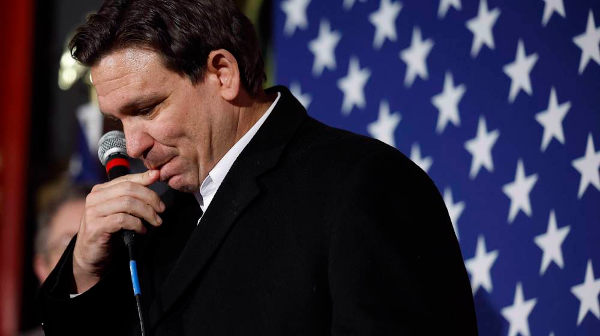
File photo shows Detention Center Camp 6 in Guantanamo Bay, Cuba.
Human rights advocates are increasingly frustrated with US President Joe Biden for failing to deliver on a pledge to close Guantanamo Bay a year into his presidency, leaving inmates languishing in the notorious offshore prison with no end in sight.
Advocates for closing the Guantanamo prison were optimistic when Biden took office last January. They were further relieved when his administration took the step of releasing a prisoner for the first time in years.
In the ensuing months, however, there have been few signs of progress in closing the detention facility in Cuba, leaving many campaigners skeptical about Bidenís approach as Guantanamo reaches the 20th anniversary of opening its gates to the first inmates-terror suspects arriving on flights from Afghanistan.
"President Biden has stated his intention to close Guantanamo as a matter of policy but has not taken substantial steps toward closure," Wells Dixon, an attorney with the Center for Constitutional Rights, told the Associated Press. The New York-based organization has a track record of challenging indefinite detentions without charge at the offshore prison.
Those who want to see the end of Guantanamo are running out of patience and fear President Biden is falling into the same trap that ensnared his former boss, Barack Obama.
Obama had made the closing of Guantanamo one of his top priorities and issued an executive order to do so soon after taking office in 2009. However, he failed to achieve that goal by the end of his second term in face of stiff opposition in Congress. His successor, Donald Trump, rescinded Obamaís order to close Guantanamo.
"Thereís a lot of impatience and a lot of frustration among advocates and people who have been watching this," said Daphne Eviatar, director of security with the human rights program at Amnesty International USA.
"We canít forget what this country did 20 years ago and is continuing to do today," Eviatar said. "This administration has a lot on its plate, certainly, but this is such an egregious human rights offense."
The Guantanamo Bay prison, commonly known as "Gitmo," became synonymous with prisoner abuse by the United States in the early years of the so-called war on terror, because of "enhanced interrogation" methods, a phrase that human rights advocates say was a cover for torture.
The administration of former President George W. Bush had selected Guantanamo, a desolate place near the eastern tip of Cuba, because it was under full control of the US military and relatively close to the mainland, but outside the legal jurisdiction of American courts.
The idea was that if the detainees -- who were being captured and transferred in droves from Afghanistan and elsewhere --were held away from US soil, they would have no legal right to seek a judgeís order of habeas corpus, which provides protection against unlawful imprisonment.
The Guantanamo detainees were subject to abuse, humiliation and torture as part of their interrogation, the accounts of which were gradually leaked to the outside world by the few lawyers who visited the prison and the inmates who have been released.
There are 39 prisoners left, down from nearly 680 that the prison held at its peak in 2003. Most have been languishing there for nearly two decades without charge and proceedings for their release have been delayed at the pretrial state for years.
The prisonís continued existence, critics say, is a reminder to the world of torture methods by the United States that President Obama once said left a "stain on our broader record."
The critics grew to include Michael Lehnert, a now-retired Marine Corps major general who was tasked with opening the offshore prison but came to view it as antithetical to American values and interests.
"To me, the existence of Guantanamo is anathema to everything that we represent, and it needs to be closed for that reason," Lehnert said.
LINK: https://www.ansarpress.com/english/25910
TAGS:






























 NY attorney general fires back at Trumpís defense of financial statements
NY attorney general fires back at Trumpís defense of financial statements 




